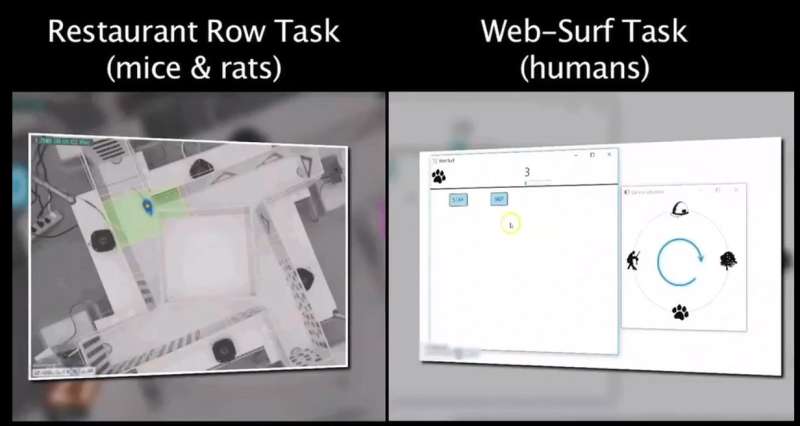July 13, 2018 report
Study suggests mice and rats, like humans, make poor choices based on 'sunk costs'

A team of researchers at the University of Minnesota has found that mice and rats, like humans, tend to make poor decisions based on "sunk costs." In their paper published in the journal Science, the group describes their study and what they found. Sarah Brosnan with Georgia State University offers a Perspective piece on the work done by the team in the same journal issue.
Most people are familiar with "sunk costs," and some of the behaviors associated with it. One example of a sunk cost is watching a movie to the end even when you're not enjoying it, simply because you have already invested so much time in it. Scientists study such behavior as a way of learning more about the human mind and how it works. But, perhaps equally important, do other animals have similar traits? If so, that might indicate a biological basis for our behavior. In this new effort, the researchers set up experiments to test whether mice and rats make poor choices just because they have invested time in them as well.
The experiments consisted of setting up a rodent food court with tasty pellet choices. A rat or mouse would then be introduced into the food court and observed to see how it responded. To add an element of sunk cost measurement, the researchers trained the rodents first to respond to different tones. One tone indicated how long they would have to wait for a given treat if they picked it. Another would serve as a countdown, letting them know how long they had to wait once they made a choice. The rodents were also given the option of abandoning a choice during their wait to go eat something else. The researchers found that both rats and mice would wait for a treat even if they knew a better one was available, regardless of how much waiting time lay ahead of them. They also found that the resolve of the rodents grew stronger the longer they waited. This, the researchers claim, shows that the rodents also made poor choices based on sunk costs.
The researchers also conducted an experiment in which they confronted humans with a choice of which videos to watch, and found that volunteers tended to remain resolute in waiting for a video to download once they had made the choice to view it—and became more resolved the longer they waited.
More information: B.M. Sweis el al., "Sensitivity to 'sunk costs' in mice, rats, and humans," Science (2018). science.sciencemag.org/cgi/doi … 1126/science.aar8644
Abstract
Sunk costs are irrecoverable investments that should not influence decisions, because decisions should be made on the basis of expected future consequences. Both human and nonhuman animals can show sensitivity to sunk costs, but reports from across species are inconsistent. In a temporal context, a sensitivity to sunk costs arises when an individual resists ending an activity, even if it seems unproductive, because of the time already invested. In two parallel foraging tasks that we designed, we found that mice, rats, and humans show similar sensitivities to sunk costs in their decision-making. Unexpectedly, sensitivity to time invested accrued only after an initial decision had been made. These findings suggest that sensitivity to temporal sunk costs lies in a vulnerability distinct from deliberation processes and that this distinction is present across species.
© 2018 Medical Xpress















